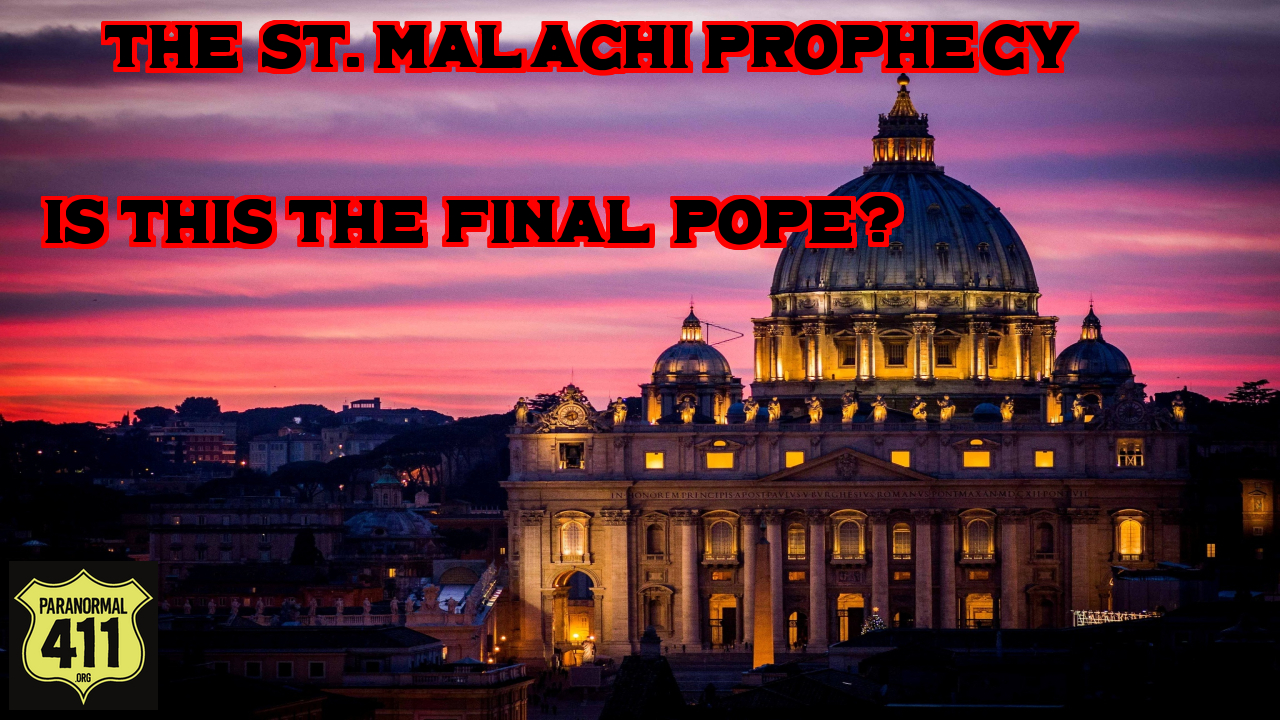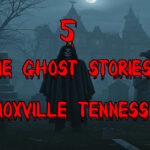
“Imagine a world where time is not a straight line… but a code. A cipher, carved into the stones of history, waiting to be cracked. A world where a 12th-century mystic—a man who spoke to angels, healed the sick, and foresaw the future—penned a prophecy so dangerous, so divine, that it was buried for centuries. A prophecy that, even now, whispers of the Vatican’s demise… and the end of days.
This is the story of St. Malachy—and the chilling countdown to an apocalypse foretold.”
Who Was St. Malachy?
“In the mist-shrouded hills of medieval Ireland, where druids once chanted and saints walked barefoot through bogs, a boy named Máel Máedóc Ua Morgair—later known as Malachy—was born in 1094. By age 25, he was a bishop. By 30, he’d become Archbishop of Armagh, the spiritual heart of Ireland. But Malachy was no ordinary cleric.
He was a mystic. A man of visions.
Chroniclers wrote of his miracles: healing the blind, calming storms with a prayer, even resurrecting the dead. But his greatest gift—or curse—was his ability to see. To glimpse the future. In 1139, during a pilgrimage to Rome, Malachy fell into a trance before the tomb of St. Peter. And there, in the shadow of the Vatican, he claimed to receive a vision: 112 Latin phrases, each corresponding to a future pope… ending with the collapse of the Church itself.”
The Prophecy of the Popes
“Malachy’s prophecy was no mere list. It was a riddle, wrapped in symbolism, sealed by time. Phrases like ‘Fire in the Water’ or ‘From the Labor of the Sun’—cryptic, poetic, maddeningly vague. Yet when the final pope, ‘Peter the Roman,’ ascends the throne, Malachy warned, Rome itself would burn, and the world would face divine judgment.
But here’s where the mystery deepens.
After Malachy’s death in 1148, the prophecy vanished. For 450 years, there was no record of it—no manuscripts, no sermons, no whispers in the Vatican’s halls. Until 1590, when a Benedictine monk named Arnold de Wyon ‘discovered’ it, publishing it in his book Lignum Vitae. Why then?
Why 1590—a time of upheaval, when the Catholic Church was battling Protestant rebels and clinging to power?
Was it a coincidence… or a calculated act? A suppressed truth, finally unleashed?”
Why It Haunts Us
“Since 1590, every pope has allegedly matched Malachy’s phrases. Pius X, the ‘Fire in the Water,’ presided over the naval arms race that ignited World War I. John Paul II, ‘From the Labor of the Sun,’ born under a solar eclipse. Benedict XVI, ‘Glory of the Olive,’ tied to olive branch symbolism. And now, Pope Francis: ‘In the Extreme Persecution of the Holy Roman Church…’
The pattern is too precise to dismiss. Too uncanny.
So why does the Vatican deny the prophecy’s authenticity? Why burn archives, silence historians, and dismiss Malachy as a medieval myth? Is it because they fear panic… or because they know it’s true?
Tonight, we’ll unravel this enigma. We’ll trace the threads of a 900-year-old vision that may hold the keys to our future. And we’ll ask the question the Church doesn’t want you to consider: Are we living in the last days of St. Malachy’s countdown?
“Follow me now into the shadows of history—where saints, secrets, and prophecies collide. The clock is ticking… and the final pope may already be among us.”
A Trail of Clues Let’s begin with a question that haunts scholars: Why does St. Malachy’s prophecy vanish for 450 years?
– In 1139, Malachy allegedly hands his vision to Pope Innocent II. Then… silence. No records. No copies. Nothing. Until 1590 the height of the Counter-Reformation when a Benedictine monk ‘finds’ it and publishes it.
– Ask yourselves: Why then? The Church is fractured. Protestants are rising. The Vatican is desperate. And suddenly, this prophecy emerges—a divine guarantee that God still appoints popes. A propaganda masterpiece.
– But here’s the twist: The Vatican denies its authenticity. Calls it a forgery. Why? Because it worked too well? Or because the prophecy’s final lines—the end of the Church—are a truth they cannot afford to reveal?”
Uncanny Matches
Let’s dissect the ‘coincidences.’ Starting with Pius X (1903–1914): Ignis Ardens ‘Burning Fire.’
– A pious pope who raged against modernity. But his reign ended in 1914—the year World War I began. A war ignited by naval tensions… fire in the water. Was Malachy predicting global catastrophe?
Paul VI (1963–1978): Flos Florum ‘Flower of Flowers.’
– His coat of arms dripped with lilies—the ‘flower of flowers.’ But Paul VI also oversaw Vatican II, modernizing the Church. Was the ‘flower’ a symbol of renewal… or a warning that beauty masks rot?
John Paul II (1978–2005): De Labore Solis ‘From the Labor of the Sun.’
– Born during a solar eclipse. The sun ‘laboring’ in shadow. Yet his papacy was defined by labor: surviving assassination, toppling communism, globetrotting miracles. A pope who was the sun—relentless, blazing, inescapable.
Benedict XVI (2005–2013): *Gloria Olivae*—‘Glory of the Olive.’
– The Benedictine Order, tied to olive branches, peace… but olives also symbolize the end times. Benedict’s shocking resignation—the first in 600 years—was this the ‘glory’? Or a delay tactic, buying time before the apocalypse?
Francis (2013–present): In Persecutione Extrema…‘In the Extreme Persecution of the Holy Roman Church.’
– The first Jesuit pope. The first from the Americas. The first Francis—a saint who rebuilt a broken Church. But look around: Scandals. Empty pews. A world hostile to faith. Is Francis the savior… or the last custodian of a dying institution?”
Symbolism as Divine Code
“The prophecy’s power lies in its *vagueness*. Each phrase is a riddle—solvable only after a pope’s reign. Take John Paul I (1978): De Medietate Lunae—‘From the Half-Moon.’
– His papacy lasted 33 days—a lunar phase. His birth name? Albino Luciani. ‘Albino’ means ‘white’… like the moon. Coincidence? Or divine wordplay?
– Medieval mystics believed God spoke in symbols. Malachy, a visionary, might have translated fragments of divine code into Latin. But what if the code wasn’t divine? What if it was stolen? From pagan oracles? Occult manuscripts? The Vatican’s Index of Forbidden Books burned countless secrets. Why did this one survive?”
The Final Pope: Peter the Roman
“And now… the 112th pope. Petrus Romanus: ‘Peter the Roman, who will feed his flock amid many tribulations, after which the seven-hilled city will be destroyed.’
– No pope has ever taken the name Peter—out of reverence for Saint Peter. To do so would be sacrilege… or prophecy fulfilled.
– ‘Seven-hilled city’—Rome. Will it burn? Collapse? Or vanish into myth?
– Conspiracy theorists whisper of a ‘shadow pope’ already chosen. A puppet of the New World Order. Others tie it to the Third Secret of Fátima—a 1917 vision of the Church’s ruin, suppressed by the Vatican. Coincidence? Or pieces of the same puzzle?”
“So I ask you: Are these threads random? Or is there a pattern a script written in the 12th century, playing out in real time? The Vatican denies it. Scholars mock it. But the prophecy endures… because it speaks to our deepest fears.
What if history isn’t chaos? What if it’s a countdown? And what if we’re nearing… zero?”
Benedict XVI’s Unprecedented Resignation: A Prophetic Loophole?
“Ladies and gentlemen, on February 11, 2013, the unthinkable happened. Pope Benedict XVI, a man sworn to serve for life, suddenly resigned. The first papal resignation in over 600 years. The Vatican called it a decision made ‘for the good of the Church.’ But let me ask you: Was it really?
Benedict XVI’s reign was tied to Malachy’s phrase ‘Gloria Olivae’ ‘The Glory of the Olive.’ The olive, of course, symbolizes peace… but also the Benedictine Order, whose crest features olive branches. A perfect match, right? But here’s where it gets chilling. Benedict didn’t die in office—he stepped aside. Was this a loophole? A delay tactic to stretch out the prophecy’s timeline?
Think about it: If Malachy’s list ends with ‘Peter the Roman,’ and Benedict was ‘Gloria Olivae,’ did the Vatican panic? Did they realize they were hurtling toward the final pope and buy themselves time? Because here’s the kicker: Benedict didn’t just retire. He became the ‘Pope Emeritus’—a shadow figure, lingering in the Vatican gardens. A placeholder. A stall.
And why? Because the next pope, Francis—the first Jesuit pope in history—bears the title ‘In the Extreme Persecution of the Holy Roman Church.’* Coincidence? Or a countdown clock starting to blink red?”
Pope Francis: The Storm Gathers
“Now, let’s talk about Pope Francis. The first pope from the Americas. The first to take the name Francis. The first Jesuit. Malachy’s phrase for him? ‘In persecutione extrema S.R.E. sedebit’ ‘In the extreme persecution of the Holy Roman Church, he will sit.’
Look around. The Church is crumbling. Attendance plummets. Scandals erupt like volcanoes. Governments legalize everything the Church condemns. And Francis? He’s overhauling doctrine, pushing mercy over dogma, even hinting at reforms on celibacy and LGBTQ issues. To some, he’s a modernizer. To others, he’s dismantling the Church’s foundations.
But here’s the conspiracy angle: What if this is the ‘extreme persecution’? Not from outside enemies—but from within? The Jesuits, Francis’s order, have long been accused of secrecy and political manipulation. Was he planted to accelerate the prophecy? To weaken the Church so it collapses on schedule?
And then there’s his name: Francis. Saint Francis of Assisi once had a vision: ‘Rebuild my Church, for it is in ruins.’ Sound familiar? Now, this Francis inherits a Church in crisis. A Church Malachy said would fall under its last pope.
Ask yourselves: Is he reforming… or unraveling?”
The Vatican’s Silence: What Are They Hiding?
“The Vatican has always denied the prophecy’s authenticity. They call it a ‘medieval forgery.’ But why dismiss it so forcefully? If it’s nonsense, why not laugh it off? Unless… they’re afraid of what it might reveal.
Let me take you behind the scenes. In 2019, the Vatican opened its secret archives to researchers. But not everything was available. Documents burned. Records ‘lost.’ And insiders whisper of a *classified dossier* on Malachy, locked in a vault beneath the Apostolic Palace. What’s in it? Correspondence? Proof the prophecy was real?
Consider this: In 1958, Cardinal Giuseppe Siri was allegedly elected pope but forced to decline—supposedly due to Cold War politics. Conspiracy theorists claim he was ‘Pope Gregory XVII,’ skipped in Malachy’s list. Did the Vatican manipulate the election to stay on-script with the prophecy?
And what about Benedict’s resignation? When he stepped down, rumors swirled of blackmail, of a ‘Vatileaks’ scandal so dark it threatened to expose the Church’s underbelly. Was Benedict pushed out to make way for Francis—the penultimate pope to keep the prophecy on track?”
“The Vatican’s silence isn’t denial. It’s confirmation. They know. And they’re terrified.”
Cultural Echoes: The World is Watching
“This isn’t just a Vatican secret. The world senses it. In 2007, a book titled ‘The Last Pope’ became a bestseller, speculating about Malachy’s end-times pope. Documentaries like ‘The Prophecy of the Popes’ dissect every papal move for clues. Online forums buzz daily: ‘Is Francis the one?’ ‘When will Peter the Roman appear?’
And it’s not just fringe theorists. Mainstream media can’t resist. When Francis visited Iraq in 2021, headlines screamed: ‘Pope walks in ruins of Babylon—is this the apocalypse?’ Even secular minds subconsciously link him to Malachy’s finale.
But the most haunting parallel? Nostradamus. His quatrains mention a ‘Great Pope’ fleeing Rome amid chaos. The Book of Revelation warns of a ‘false prophet’ and a fallen Babylon. Are all these threads part of the same tapestry? A tapestry Malachy wove 900 years ago?
The world is holding its breath. Because if Malachy was right, we’re not just watching history—we’re living the final act.”
“So where does that leave us? With a resigned pope. A reforming pope. A silent Vatican. And a ticking clock. The question isn’t if the prophecy will unfold—it’s when.
Because remember: Malachy didn’t just predict popes. He predicted an ending. And every day, with every crisis, every scandal, we inch closer to those final words: ‘In the extreme persecution… the City of Seven Hills will be destroyed, and the dreadful Judge will judge His people.’
The Judge is coming. And the Vatican knows it.”
The Prophecy’s Power—and Peril
“Ladies and gentlemen, as we near the end of our journey into St. Malachy’s cryptic vision, we’re left staring at a single, unsettling question: Why does this 900-year-old prophecy still grip us?
The answer lies in the shadows where faith meets fear. St. Malachy’s list isn’t just a medieval curiosity—it’s a mirror. A mirror reflecting humanity’s obsession with patterns, with hidden designs, with the desperate need to believe that someone, somewhere, knew what was coming. That chaos has a script. That the end… has a schedule.
Think of it: For centuries, popes have risen and fallen, each seemingly tagged with a phrase so vague it could bend to fit any era… and yet, so precise that it chills the blood. Pius X and the ‘Fire in the Water’ as World War I loomed. John Paul II, the ‘Labor of the Sun,’ a man whose reign stretched across the dying days of the 20th century, a century lit by nuclear fire. Benedict XVI, the ‘Glory of the Olive’—a pope who stepped down, breaking a 600-year tradition. A resignation that didn’t just shock the world… it fit. Like a puzzle piece snapping into place.
And now, Pope Francis. ‘In the Extreme Persecution of the Holy Roman Church…’ Look around. The Church is besieged—not by armies, but by scandals. By empty pews. By a world that no longer kneels. Coincidence? Or is this the prelude? The final act before ‘Peter the Roman’ takes the stage?
But here’s where the prophecy’s true power lies. It doesn’t just predict it provokes. Why has the Vatican never embraced it? Why lock it away for 450 years, only to let it surface during the chaos of the Counter-Reformation? Could it be that the Church knows something we don’t? That behind those frescoed walls and sealed archives, there’s a quiet panic—a fear that Malachy’s vision was never a prophecy… but a warning?
And what of us? The outsiders, the observers, the ones connecting dots in the dark? Every time a pope takes a new name, every time a global crisis erupts, we’re drawn back to that list. To its riddles. To its promise of an ending. Because deep down, we crave the story. The story that says, ‘This is all leading somewhere. This matters.’
But beware: Prophecies are double-edged swords. What if the very act of believing fuels the outcome? What if ‘Peter the Roman’ isn’t a divine decree… but a self-fulfilling script? A name chosen by a future pope who’s read the legends, who’s steeped in the myth, who decides—consciously or not—to play the role history assigned him?
So as we stand here today, watching the Vatican, watching the world, remember this: St. Malachy’s prophecy endures not because it’s true… but because it terrifies. It terrifies the faithful, the skeptic, and the conspirator alike. Because whether this is heaven’s plan or humanity’s hallucination, one thing is certain: We are all characters in this story now.
And the final line of that story? It’s written in a dead language, waiting to be decoded. Petrus Romanus. Peter the Roman. The last pope. The end of the Church. The end of Rome. The end… of us?
Or is it just the beginning of another mystery?
The clock is ticking. The next conclave could be our answer. Until then… keep watching. Keep questioning. And ask yourself: What if the end was written centuries ago… and we’re already on the last page?

 5 True Ghost Stories of Knoxville Tennessee
5 True Ghost Stories of Knoxville Tennessee  The Minds Last Stand: The Third Man Factor
The Minds Last Stand: The Third Man Factor  Shadow Figures: They’ve Been Watching You All along
Shadow Figures: They’ve Been Watching You All along  The Bigfoot Mystery of Mt Saint Helens
The Bigfoot Mystery of Mt Saint Helens  Bigfoot’s Hidden Rage: Why some Encounters turn Deadly
Bigfoot’s Hidden Rage: Why some Encounters turn Deadly  Cheating Death at the Quantum Level
Cheating Death at the Quantum Level  Into the Unknown: Exploring the Michigan Triangle
Into the Unknown: Exploring the Michigan Triangle  The Shag Harbour UFO Incident
The Shag Harbour UFO Incident